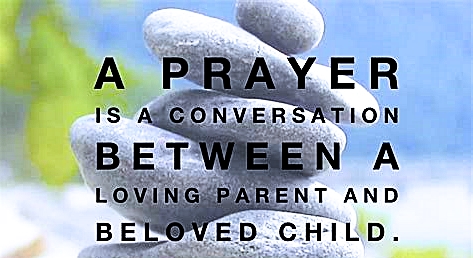Conversational Prayer – BT13

Drawing-near conversational-prayer isn’t talking, busyness, or works but peacefully-resting from all of it
Please follow the BLOG Etiquette to stay on topic and pass the moderator’s check. Bold, underlined text below = future links to the BLOG pages.
The OT gives a key imperative about prayer: “[I strongly urge you to] definitively/wholly become [passive] still (a) before Yahweh and/coupled [I strongly urge you to] definitively/wholly become [passive] patiently-waiting for Him” (b) and gives us this amazing promise: “[I strongly urge you to] definitively/wholly become [passive] still (a) kai and/coupled (c) definitively/wholly become [passive] experientially, relationally yada/ginosko knowing that I am God” (d). Because yada/ginosko knowledge requires a 2-way relationship, we can become passively still forever without any results whatsoever. Also we can actively try to relationally know God until we are blue in the face without any results – world religions have been trying forever and are no closer to God. However, yada/ginosko is also passive, and so it implies that both becoming still and/coupled having a relationship with God are something we have to having trusting-relying-faith in God for. If we do “passively-wait for Him” while “also passively being still” we stand a good change of actually being in a yada/ginosko relationship with God. The context bears this out: stop running around with your head cut off about the cares of this world and instead stop, shut up, and just patiently-wait for the Lord to create an amazing relationship WITH you that will save you from your worse fears and cares. When quieting the storm that caused so much fear among the disciple of “little trusting-relying-faith,” Jesus strongly urged with the imperative: “presently/ongoingly actively siopao Be Silent! Phimoo Become [passive] Muzzled-Silent!” and “there was a great calm” (e). We need to be peacefully at rest in order to really know the Lord in order to find peaceful-rest from the threatening-chaos of the world. <Notes> a) raphah, scholazo: take a vacation from your work, relax, rest, quiet yourself, b) Psalms 37:7, c) kai can have many other meaning than “and-coupled or and-related” like “still, besides, also, moreover, likewise, even, indeed, namely, specifically, d) Psalms 46:10, e) Mark 4:39.
That’s why Jesus taught, “Come To Me, all who labor/work/toil and/coupled overburdened [a], and I will give you peaceful-rest/ease/repose. Take My yoke (b) upon you, and manthano learn from Me (c) for I am gentle and lowly in heart, and [then] you will find peaceful-rest for your souls, for My yoke [is] easy (d) and My burden (load) is presently/ongoingly actually light (e)” (f). He said this right after v. 11:25 “these things” or v. 13:11 “secrets of the kingdom” (g) remain “hidden from the ‘wise and understanding’” (h) but are “revealed to little children.” <Notes> a) context: with the load of the Law’s commandments: Luke 11:46, b) training harness, c) manthano: “increase one’s knowledge, be informed, or hear or learn from” but here in person rather than from books, cf. ‘learned from the Father’ to be ‘taught by God’ per John 6:45, ‘learned Christ’ per Ephesians 4:20, learning by prophecy per 1 Corinthians 14:31, d) manageable, mild, pleasant, kind, e) in weight, thus easy to carry, f) Matthew 11:28-30, g) Luke 8:10, h) context: the Jewish experts of the scripture or Gentiles of philosophical writings.
The writer of Hebrews to Jewish-Christians being tempted to go back to the Law of commandments for their security, wrote: “the promise of entering God’s peaceful-rest (a) still stands” (b), “for we who have had trusting-relying-faith [in Christ] enter that peaceful-rest” (c), “so then, there remains a Sabbath Rest for the people of God, for whoever has entered God’s peaceful-rest has also rested from his works as God did from His. Let us therefore strive to enter that peaceful-rest” (d). <Notes> a) from His work on the 7th day of creation: Hebrews 3:11, 4:4, 10, b) v. 4:1, c) v. 4:3, d) v. 11.

